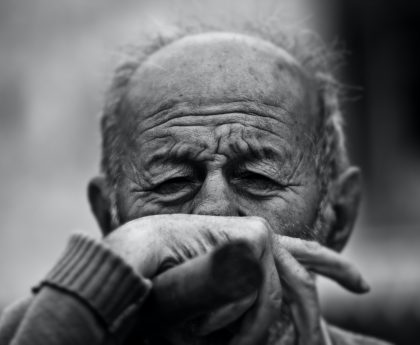Breastfeeding can help protect you from developing breast cancer. There are also other steps you can take to lower your risk, such as staying physically active and reducing alcohol consumption.
Breast cancer is the most common cancer affecting women. The American Cancer Society Trusted Source estimates that 1 in 8 women, about 13%, will receive a breast cancer diagnosis at some point in their lifetime.
While there’s no sure way to prevent breast cancer, there are some things that can reduce your risk. For example, did you know that breastfeeding can reduce your risk of breast cancer?
A 2020 survey study Trusted Source conducted in the United States found that only 38.5% of the women that were surveyed were aware that breastfeeding reduces breast cancer risk.
Read on to learn more about how breastfeeding lowers your risk of developing breast cancer, other steps you can take to prevent breast cancer, and more.
How does breastfeeding lower your risk of breast cancer?
Breastfeeding is a protective factor for breast cancer. It’s unclear exactly why this is the case. However, a combination of the following factors is likely at work:
- Breastfeeding promotes changes in breast cells that may make breast cancer less likely to occur.
- The hormonal changes that happen during breastfeeding can delay the return of your period, meaning you’re exposed to less estrogen while breastfeeding. Long-time exposure to estrogen raises breast cancer risk.
- It’s more likely that people who are breastfeeding engage in healthy lifestyle choices, such as eating a balanced diet, avoiding alcohol, and not smoking.
Now let’s look at what some of the research on breastfeeding and breast cancer risk has found.
Research into breastfeeding and breast cancer risk
Older research from 2002Trusted Source involving data from 47 studies across 30 countries found that the risk of breast cancer decreased by 4.3% for every 12 months of breastfeeding.
The magnitude of this reduction didn’t vary significantly based off of location, age, ethnicity, or personal factors like the number of births or menopausal status.
Breastfeeding also benefits people at a high risk of breast cancer, such as those with certain genetic changes. Another older study from 2012Trusted Source found that breastfeeding for at least a year was associated with a 32% risk reduction in people with changes in the BRCA1 gene.
It also appears that breastfeeding may reduce the risk of specific types of breast cancer. Some research, including studies from 2015 and 2019Trusted Source, has found that breastfeeding protects against hormone receptor-negative breast cancers, which typically have poorer outcomes.
What other things can you do to lower your risk of breast cancer?
In addition to breastfeeding your children, if possible, there are also other steps that you can take to help lower your risk of breast cancer.
Stay physically active
Regular physical activity can help to lower your risk of breast cancer as well as some other cancers. It’s also important for your overall health.
The Physical Activity Guidelines for Americans Trusted Source recommends 150 to 300 minutes per week of moderate-intensity exercise, 75 to 150 minutes per week of vigorous-intensity exercise, or an equivalent combination of the two exercise types.
Manage your weight, if necessary
A higher body weight has been linked Trusted Source to the development of several cancers, including breast cancer. As such, if you have overweight or obesity, talk with a doctor about healthy ways to manage your weight.
Reduce alcohol consumption
Alcohol, especially in excess, increases your risk Trusted Source of breast cancer and can have a variety of other negative health effects as well. In order to reduce your risk, consider reducing alcohol consumption or eliminating it entirely.
If you do choose to drink, the Dietary Guidelines for Americans Trusted Source recommend one drink or less per day for women and two drinks or less per day for men. Keep in mind that what’s considered a drink varies by the type of alcohol.
Talk with a doctor
If you have a family history of breast cancer, talk with a doctor. They may suggest genetic testing to see if you have gene changes that significantly boost your risk. If so, you can explore further preventive options like medications or surgery.
Taking certain hormone-based medications like oral contraceptives and hormone replacement therapy also increases your breast cancer risk. If you take these medications, talk with a doctor about the pros and cons of these medications and if there are any alternatives.
What are the primary causes and risk factors for breast cancer?
Breast cancer happens when cells in the breast begin to grow and divide uncontrollably, potentially spreading to other areas of the body. It happens due to changes to genes in your DNA that affect the way that cells grow and divide.
Some of these genetic changes happen because of random errors that occur as your cells divide. Others may be passed down, or inherited, from your parents. Certain lifestyle and environmental factors can also promote genetic changes.
Known risk factors for breast cancer
Things that increase your risk of developing a condition like cancer are called risk factors. The known risk factors for breast cancer include:
- being an older age
- having a personal or family history of breast cancer
- inheriting certain genetic changes, such as those in the BRCA1 and BRCA2 genes
- having dense breasts
- having certain benign breast conditions like:
- having certain other health conditions, such as obesity or type 2 diabetes
- starting your menstrual period at an earlier age
- experiencing menopause at an older age
- not having children or having your first child at a later age
- not breastfeeding
- using certain hormone medications, such as oral contraceptives and hormone replacement therapy
- receiving radiation therapy to your chest
- being a taller height
- consuming alcohol
- having low levels of physical activity

How often should you receive screening for breast cancer?
Breast cancer screening can go a long way in detecting breast cancer in its early stages. When it’s found early, the outlook for people with breast cancer is better.
The test that’s typically used for breast cancer screening is called a mammogram. In some scenarios, breast MRI or breast ultrasound may also be used as a part of screening.
The American Cancer Society Trusted Source recommends the following for women at an average risk of breast cancer:
- Age 40 to 44: Consider having a screening mammogram every year.
- Age 45 to 54: Receive a screening mammogram each year.
- Age 55 and older: Consider having a screening mammogram every other year or continue to have them yearly.
Those at a high risk of breast cancer are recommended to begin screening with a breast MRI and a mammogram starting at age 30. This includes:
- people with a strong family history of breast cancer
- individuals with known genetic changes that increase breast cancer risk
- those who’ve received radiation therapy to their chest
Frequently asked questions
How long do you need to breastfeed in order to get the most benefits?
Generally speaking, people who breastfeed for longer than a year receive the most benefits. However, it’s still possible to get some benefits if you breastfeed for less than a year.
Can you still get breast cancer if you breastfeed? How common is it?
Yes. However, it’s uncommon during your childbearing years. The American Cancer Society Trusted Source notes that breast cancers in women under age 40 are estimated to make up only 4% of new invasive breast cancer diagnoses in 2022.
Getting breast cancer while breastfeeding is also rare. According to 2012 research Trusted Source, It’s estimated that only 3% of women develop breast cancer while breastfeeding.
Does having children decrease your risk of breast cancer (even if you don’t breastfeed them)?
Yes, the risk of breast cancer tends to decrease with the number of births. However, some research indicates that this effect varies between different types of breast cancer.
Can breastfeeding lower the risk of ovarian cancer?
Yes. Some research Trusted Source has found that breastfeeding for over 12 months can reduce the risk of ovarian cancer by 37%.
How many women breastfeed?
According to the CDC Trusted Source, 83.2% of babies born in 2019 were breastfed. This number dropped to 55.8% and 35.9% at 6 months and a year, respectively.






